This photo was part of The Anti-Drug Poster Campaign by Spring ISD that won the NSPRA “Excellence” award in the “Branding/Image Package” category. More on page 6.






This photo was part of The Anti-Drug Poster Campaign by Spring ISD that won the NSPRA “Excellence” award in the “Branding/Image Package” category. More on page 6.





PRESIDENT
Rebecca Villarreal, APR, PRSA Fellow New Braunfels ISD
PRESIDENT-ELECT
Megan Overman, APR, CPC Eagle Mountain-Saginaw ISD
IMMEDIATE PAST PRESIDENT
Veronica Sopher Fort Bend ISD
INTERIM EXECUTIVE DIRECTOR
Julie Thannum, APR CESO Communications
GULF COAST AREA
Helen Escobar Roma ISD
HOUSTON/BEAUMONT AREA
Kristyn Cathey, APR Goose Creek ISD
EAST TEXAS AREA
Jamie Fails Willis ISD
NORTH CENTRAL AREA
Rachel Frost ESC Region 10
WEST CENTRAL AREA
Jennifer Marshall-Higgins, CPC ESC Region 12
CENTRAL AREA
Marco Alvarado Lake Travis ISD
NORTHWEST TEXAS AREA
Kenneth Dixon Lubbock ISD
FAR WEST AREA
Daniel Escobar Socorro ISD
SAN ANTONIO AREA
Kim Cathey Judson ISD
AT-LARGE POSITION 1
Jennifer Bailey, CPC Belton ISD
AT-LARGE POSITION 2 Stephanie De Los Santos HCDE
AT-LARGE POSITION 3 Sherese Lightfoot Garland ISD
PARLIAMENTARIAN Christina Courson Lockhart ISD
Texas School Public Relations Association 406 East 11th Street, Suites 101-105 Austin, Texas 78701 Phone: 512-474-9107 Fax: 512-477-0906
For questions, submission and advertising, contact TSPRA: info@tspra.org
Copyright 2022. Texas School Public Relations Association. All rights reserved.
MANAGING EDITOR
Justin Dearing
CESO Communications GRAPHIC DESIGN
Samantha Chin Cara Zacny
CESO Communications
EDITORS
Zach Perkins, New Braunfels ISD Erin Gregg, APR, Lubbock ISD Nydia Natividad, Pecos-Barstow-Toyah ISD Matthew LeBlanc, Eagle Mt.-Saginaw ISD
MAGAZINE COMMITTEE CHAIR Zach Perkins, New Braunfels ISD MAGAZINE COMMITTEE
Erin Gregg, APR, Lubbock ISD Nydia Natividad, Pecos-Barstow-Toyah ISD Matthew LeBlanc, Eagle Mt.-Saginaw ISD
HCDE makes a BIG impact on Harris County communities through specialized schools; Head Start early childhood education; afterschool programs; school-based therapy services; and adult education.

The holiday season is upon us! I am excited about a short break away from all the hustle and bustle. This fall semester is filled with so many events that it gets slightly overwhelming. But hang in there. You are doing a great job!
For this issue of the magazine, we chose marketing as the theme. We have included viewpoints and articles that you will find helpful. We chose this theme because we all must stay ahead of the times and remain competitive. Parents now have more choices than ever. This means we need to increase our efforts to tell our stories and showcase the fantastic opportunities available in our schools. I don’t just mean the cute dress-up days, but the programs and offerings available to our students.
Our roles have changed in the past 20 years since I joined TSPRA, but there has been nothing more valuable than the resources I have through TSPRA and its members. The work we do is hard, but telling the stories and shining a light on all the great things happening in public schools is very rewarding. I hope you will find some valuable information in this issue.
I hope you will also take advantage of the diverse learning opportunities and networking opportunities that only the TSPRA conference can bring. Conference registration is now open, so make sure to get that purchase order in ASAP. I am excited to host you in Fort Worth for four days of learning this year! We are increasing the number of learning sessions we plan to offer, so be on the lookout for more details. I can’t wait to see you in Cowtown in February!
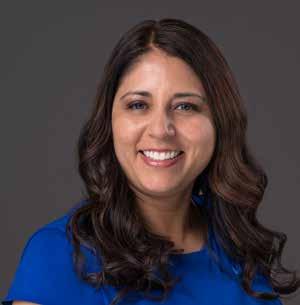
This photo was part of The Anti-Drug Poster Campaign that allowed high school students across Spring ISD to share in a contest what their anti-drug hobby is--whether it’s sports, music, or unique extracurricular activities such as flying airplanes. 14 students were elected across Spring ISD’s five high schools as Spring ISD Anti-Drug Ambassadors, and their posters are currently present in all 43 campuses across the district.

The Anti-Drug Campaign Posters won the NSPRA “Excellence” award in the “Branding/ Image Package” category.

$40 FOR NON-MEMBERS
Member receive:
• access to the session presentation a copy of the session recording
$25/SESSION
$35/SESSION FOR NON-MEMBERS
Member receive:
• access to the session presentation a copy of the session recording
$150 FOR NON-MEMBERS
Member receive:









• access to the Live Webinar access to the Q&A portion of the Webinar



• all recordings of events, even if the event has passed
• additional perks
One of the greatest benefits of being a TSPRA member is having the opportunity to network and learn from each other. We reached out to members across the state and asked them for their quick tips or hacks that help them be more efficient in their work. Enjoy some of the best tips from your friends around the state. If you have a hot tip or hack you want to share in Communication Matters, email info@tspra.org.
Whenever we post our gameday graphics, we post a link to our livestream with the following disclaimer, “All other links are spam.” This has really helped decrease the number of spam links that we have to report and block. Our followers also know not to click on anything other than what is on the district’s post.
Zoheb Hassanali - Joshua ISD - Director of Communications
For
“I created a campus communications liaison program so photos from all campuses and story leads are sent to me. I am a one-person department in a 6A district and this has been invaluable to me. I learned about this program from another district when attending a TSPRA conference!”
Wendy Sledd - Copperas Cove ISD - Director of Communications
For When You Need To Send a Message Quick:
“I
using VOXER for voice messages and voice memos. It’s a great hack I learned from some NSPRA colleagues and it has made a world of difference for me.“
Veronica V. Sopher - Fort Bend ISD - Chief Communications Officer
On Quickly Designing Something That POPS:
Marco Alvarado Lake Travis ISD - Executive Director of Communications
Top 3 Canva Hacks For the #SchoolPR Pro
BRAND KITS - If you work in a district where every campus has a color palette, logo and mascot, you have to start using this feature today! Brand kits will let you build, just that, kits for each of your individual campus brands. We have a dedicated brand kit for TSPRA.
BACKGROUND REMOVER TOOL - This is a no-brainer for when you need to just focus on the subject in the piece you are using in Canva. Yes, there are ways to accomplish this with other software or online tools, but having it right there in the Canva interface is a massive plus!
SMART MOCKUPS - If you are designing t-shirts, folders, etc. use this feature to see what they will look like on these various items. It is also very useful when marketing the sales of these items or sharing information with your community.
Director of communications and marketing
South San Antonio Independent School District
What did you do before this job?
I was the Digital Media Specialist for The San Antonio Academy of Texas. Prior to that role, I was with Harlandale ISD as a publications editor for five years.
Why did you join TSPRA?
I joined TSPRA because I am eager to network with other PR professionals. My hope is to not only learn from other professionals, but share ideas and create some wonderful relationships along the way.
What is something TSPRA colleagues need to know about you?
Working at South San Antonio ISD means so much to me because I am a product of the southside of San Antonio. I want to do my absolute best to highlight our students, community and district’s successes and show what SSAISD has to offer.
What is something TSPRA colleagues would not expect to know about you?
I am a huge animal advocate and have four rescue pups of my own. I do my best to volunteer my time and help as many animals find their FURever homes.

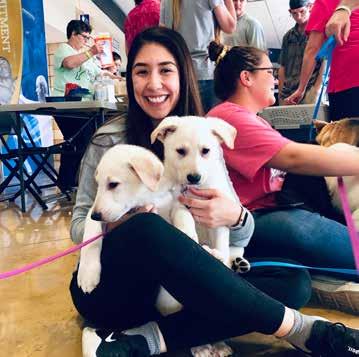
What is something on your bucket list?
I would love to travel to Paris and see the City of Love.
Communications specialist
Forney Independent School District
What did you do before this job?
Before joining Forney ISD, I was the communications coordinator at my church. Prior to that, I worked as an account coordinator at Dux Public Relations.
Why did you join TSPRA?
I joined TSPRA because I knew that it would be a valuable resource as I learned about school PR. As someone without prior experience in education, I knew that an organization like TSPRA would help me connect with other colleagues and grow my skill set.
What is something TSPRA colleagues need to know about you?
I am excited to join other PR pros and learn the best ways to connect the district and the community.
What is something TSPRA colleagues would not expect to know about you?
In high school, I went to state three years in a row for UIL Spelling and Vocabulary!
What is something on your bucket list? Visit Alaska!


It was the summer of 2015. I had been in school PR for nine years. That voice in my head had softly been whispering to me about earning my Accreditation in Public Relations (APR) for quite some time. I had even attended an APR boot camp pre-session at a TSPRA state conference to understand better what all was involved in the process. So, I knew a little about the expectations even though so many of the requirements were still vague to me.
As the voice in my head continued, I was approached by TSPRA members who had earned their APR, suggesting I take this next step in my career. No one in TSPRA had earned an APR certification in 13 years. Suddenly that inner voice was much louder than a whisper. It interrupted my thoughts day and night. I use that same voice repeatedly to tell my children not to procrastinate and get their rooms cleaned. I, too, was out of the excuses I had given myself before when life got in the way. There wasn’t a bond election to worry about, the kids were getting older, and work was manageable.
Deep down inside, it was a professional goal
I wanted to conquer. Even though I seemed paralyzed to move forward, three essential aspects of the process spoke to me so personally. I had the experience required to become APR certified. I wanted to continue to educate myself further, refine my skills, and master the principles of public relations. My third and most important reason was that the ethics I value are not only at the core of who I am, but also a fundamental characteristic of being APR certified.
What’s involved in the APR process? It requires a candidate to complete a questionnaire and present a project portfolio to a panel of three APR professionals. The panel will ask questions, review the portfolio, and evaluate the candidate's knowledge, skills, and abilities in 12 specific areas that cannot be effectively judged in the computer-based exam. The TSPRA APR chair can help members set up virtual or in-person panel presentations. The panel presentation component is designed to help candidates strengthen areas of weakness for further study before taking the computer-based exam. Some of these panel presentations take place in-person or virtually.
Once a candidate advances through the panel presentation, the computer-based exam is the next step. Preparing for both stages of the process takes time and planning. There are many support systems in place throughout the process.
Once I decided to start the process, I was a little worried about how I was going to find the time needed to prepare for the panel presentation and study for the exam. Since I was the only person in our East Texas region preparing for the APR, I felt alone in the process. Thankfully, I had a wonderful mentor and friend named Judith Saxton. She was not only a fellow TSPRA member, but our TSPRA APR chair. Judy was great about sharing preparation and study tips and touching base with me regularly. She reviewed my panel presentation
and shared feedback to help keep me on track to completing my accreditation.
TSPRA has a supportive mentor program, access to study groups, and even a discount on an APR online study course.
Candidates do not have to go through the process alone. With Judy’s support and assistance, I could break down the whole process into smaller, manageable chunks. The adage, “How do you eat an elephant? One bite at a time,” is precisely how I approached the year-long process.
TSPRA provides terrific opportunities for members to continue professional development. Whether attending an online learning opportunity, a regional meeting to gain knowledge from guest speakers, or attending the state conference to network, meet with others in like positions, or apply practical ideas from roundtable and breakout sessions, TSPRA members are eager to grow and improve as school communicators.
That’s why earning the APR should be strongly considered for those who have been in the publicschool communications profession for more than five years. Many PR professionals do not realize that only about 20% of people who identify as being in the public relations industry have earned the APR status.
Earning my APR gave me a sense of pride in my personal growth and development. My accreditation journey gave me confidence because I am equipped to practice communications from a strategic point of view.
I believe Accreditation in Public Relations is as important as in other professions. A CPA prepares my taxes. My health care physician is board certified.
Every APR member’s responsibility is to encourage the next APR candidate. If you think you’re ready to take the next step and earn your APR, there are many of us prepared to help you make this goal a reality.
Angela Duitch has been with the communications department at Tyler ISD for more than 16 years and is currently the facilitator of multimedia content. She has over 20 years of experience in video production, broadcasting, and communications in the private sector.

In addition to attending a fantastic conference, get ready to enjoy the fun that downtown Fort Worth and beyond have to offer! During your downtime, enjoy the delicious dining options onsite at the Omni or all throughout downtown, experience the oasis of the Fort Worth Water Gardens, visit the beautiful Sundance Square promenade in the center of downtown Fort Worth, or even sneak a little farther away to visit the Historic Fort Worth Stockyards or the Botanic Garden! www.omnihotels.com








As communication professionals, we are often called upon to help champion an idea, event, or a program, but in the 2020-2021 school year, I had challenge of championing something I had never done before—a districtwide cultural transformation.
In 2019-2020, Lockhart ISD (LISD) embarked on a journey to develop a formal leadership definition that would serve as the standard of measure for every LISD leader and serve as a guide for aspiring leaders. To begin, the school district engaged all of its employees across the district and asked them to identify the qualities most important to them in a leader in LISD. The resulting feedback totaled 6,914 ratings of thoughts and priorities shared by staff. Our leadership team worked in partnership with The Holdsworth Center to distill this feedback into three core beliefs and nine leadership behaviors.
In Lockhart ISD, we refer to this as our #LockhartLeading district values. We have a “LockHeart for People,” knowing that when we take care of the people we serve, they are better able to take care of business. We do this through communication, building relationships, and nurturing a positive culture. We are “Locked on Excellence,” which yields leadership behaviors such as holding high expectations, being a change agent, and engaging in strategic planning. We are “UnLocking Potential,” ever-growing ourselves and others through personal leadership, cultivating talent, and distributive leadership.


While we were proud of the development of these district values, we needed to find a way to formally introduce these values to the school district for the 2020-2021 school year. In 2019, a survey of Lockhart ISD staff by The Holdsworth Center indicated only 59% of teachers, 82% of assistant principals, 56% of principals, and 52% of Central Office staff believed the district had clearly defined the characteristics of great leadership.
LISD launched its #LockhartLeading marketing initiative with the goal that staff would be able to articulate the three core values of the leadership definition and recognize them when demonstrated by others. This goal was developed with input from the district’s leadership team and guided the work of the marketing initiative.
In order for our staff to become well-acquainted with our #LockhartLeading core values and leadership behaviors, it was critical to find ways to ensure high visibility across the school district.
First, LISD designed a logo that demonstrated the core values and behaviors of our leadership definition. Circular in design, the logo’s appearance is similar to that of a target. This was intentional because the core values and associated leadership behaviors are what every LISD team member should strive for in the spirit of #LockhartLeading.
The district designed 4’ x 8’ banners with grommets to be hung prominently at all nine of our campuses and our LISD administration building. Anyone walking into our buildings would be greeted by our #LockhartLeading values. Additionally, the district designed three 33.5” x 79.5” stand-up, retractable banners, one for each core value, along with the associated leadership behaviors. These were mobile and allowed us to display them prominently at special events or meetings.
As LISD developed a staff recognition campaign that raised awareness of the values and increased their visibility, the district ordered wearable swag that could be widely seen. As everyone wore masks due to the pandemic, the district ordered face masks with “Locked on Excellence” printed on them with the district logo. The district also ordered drawstring backpacks that displayed “LockHeart for People.” The third item ordered was a keychain with a lock shaped like a heart with the district logo on it with “UnLocking Potential” at the top of the design. These three items were things people would use frequently, helping us market our values.
The superintendent launched the #LockhartLeading campaign at our virtual convocation in August 2020 by first driving a Jeep Wrangler on to the stage of our performing arts center. Having captured everyone’s attention, he unveiled the core values and leadership behaviors developed with staff feedback the year before, charting the course for the year with a deep dive into and celebration of these values. Even better, the superintendent announced the Jeep would be part of those celebrations.
Each month, the superintendent sent a message to all staff with a monthly districtwide core value and leadership behavior focus. The district invited staff to nominate those who exemplified that specific leadership behavior for recognition by submitting printed or online nominations. These nominations were compiled at Central Office, and the honorees received a copy of their nomination, a thank you note signed by the superintendent
specific to that leadership behavior, a 3” decal of the #LockhartLeading value they could display on personal items, and the swag reflecting the celebrated core value.
At the end of the month, the superintendent’s Cabinet reviewed nominations and selected the staff who best exemplified the value of that month. Then, the superintendent surprised that staff by awarding a Jeep for a month for demonstrating the #LockhartLeading behavior. LISD was able to provide this in partnership with a local car dealership. The district made videos of each of these surprise awards and shared them on our social media channels and weekly district newsletter “The Lion List.”

District leaders used hashtags on social media when posting examples of the #LockhartLeading core values-- #LockedOnExcellence, #LockHeartForPeople, and #UnLockingPotential. Other LISD staff followed the example and began regularly using the hashtags on their Facebook and Twitter posts.
All communication from the superintendent referenced the core values and behaviors, weaving these into the staff and parent communication as part of our everyday language. Additionally, the Board of Trustees recognized staff who exemplified these core values and leadership behaviors at the regular board meetings. Communication staff included the #LockhartLeading values in presentations made by the district as well.
Throughout this campaign, LISD staff could see, hear, model, write, post, tweet, and say the #LockhartLeading values and behaviors. Engaging and fun, the campaign was a big success.
The Holdsworth Center conducted a survey of staff once again at the end of the 2020-2021 school year. It revealed the marketing campaign was successful. In the measure related to whether the district had clearly defined the characteristics of great leadership in LISD, teacher ratings increased from 59% to 79%; assistant principal ratings increased from 89% to 92%; principal ratings increased from 56% to 89%, and central office ratings increased from 52% to 89%.
In the 2020 Lockhart ISD Staff Engagement Survey, 86% of LISD staff indicated they were proud to work for the school district. In 2021, the number for this same measure increased to 91%. In 2020, 61% of staff indicated they believed district administrators made good decisions overall. In 2021, this measure increased by double digits to 73%. The leadership team feels strongly that the increase in district pride correlates to the clarity of what LISD stands for and prioritizes in its culture. Also, the increase in approval of district administrations correlates with district administrators using the values to make decisions and referencing those values when sharing those decisions.
The most rewarding part of this campaign was knowing that the core values and leadership behaviors were distilled from the direct feedback of our LISD staff.
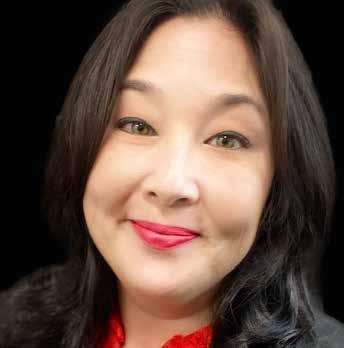
In revealing the formal representation of their values and priorities, the staff truly celebrated them because they had shared ownership in developing them. They felt tremendous pride to be part of the #LockhartLeading team and fueled the success of this campaign and cultural transformation.
At a time when many job seekers consider culture as a priority in decisions about potentially joining an organization, our #LockhartLeading culture serves as an asset in our recruitment. Our campaign kicked off the transformation, but our staff now embody these values and truly serve as “deputized” marketing champions. Their shared experience with others creates the buzz that draws teachers and other recruits to our school district—one of the many ways in which we are #LockhartLeading.

When it comes to recruiting teachers and staff, the struggle is real. We live in a time where fewer teachers are coming into the profession, and the job market for all staff is more competitive than ever. It would be nice if you could make applicants appear out of thin air. While you can't do that, you can implement some changes to your recruitment marketing strategy that will bring results.
First, you need to identify your staff shortages and the target audience or population that would be interested in these positions. Recruitment isn't cookie-cutter. Different target audiences use different platforms. New teachers aren't concerned about benefits, retirement, or insurance savings. They care about the bottom line of what they are being paid. Show them the money. They are interested in professional development, growth opportunities, and the facilities they'll be working in. To recruit this target, sell what your city offers.
Experienced teachers aren't as concerned about growth, professional development, or facilities. They are more interested in leadership, who their coworkers are, and benefits. Show this audience the savings. Recruitment marketing is about the target audience, so you must create target personas. Personas are like personal profiles, but only based on interest. So, a younger teacher may enjoy different things than an experienced teacher. Be intentional. Place your jobs on specific platforms. Why place a job where they won't see it?
For example, a younger persona may prefer to be on Instagram and TikTok. They are probably fresh out of college, stream Netflix, love social media, enjoy adventure, shop online, use Credit Karma, and recently searched for renter's insurance. Does this sound like a teacher in your district?
While an experienced teacher persona would probably prefer Facebook, Instagram, and LinkedIn. They most likely enjoy home improvement projects, watch HGTV and Hallmark, volunteer in the community, look at homes for sale on Zillow, and monitor job opportunities regularly.
Creating these personas may feel ridiculous, but they help reduce advertising costs when recruiting candidates.
When recruiting, you need to have a place to send your potential candidates. Does your district have a careers page or website? Recruitment is all about the first impression. If you have a careers page or website, what does it look like? Have you used it to search for job openings? Is it easy to navigate? Is the information that applicants are looking for available and easy to find?
Your goal is to guide them through the first impression. Your careers page should have information and content that encourages them to apply, include strategic call-to-action buttons like "apply now" or "search careers," and be well thought out. After all, it's the welcome mat to your district!
It helps to have "Why Apply?" or "About Us" pages highlighting your district's unique differentiators. At Tyler ISD, we highlight our salary and compensation, healthcare savings, and the inexpensive cost of living.
Also, potential candidates are most likely viewing job openings on their phone. According to our analytics, nearly 70% of visitors to our careers page use their phones. Your website must be best used on a mobile device to capitalize on these visits. This is called mobile-first design, and it's a differencemaker in recruitment.
Now that you have your personas, it’s time to advertise. Meta Ads is a solution that helped us promote our in-person teacher job fair. Using Meta, formally known as Facebook, to digitally advertise allows you to market on all the platforms they own, like Facebook, Instagram, and Messenger. We aren't just talking about making a post or boosting a post mentioning "We're hiring." We are talking about highly-targeted ads that put your opportunity in front of the people that need and want to see it.
When advertising on Facebook, you can use "dynamic creative" in your ads. Dynamic creative optimizes your ad for each person that sees it. So, if you create a job fair ad and use dynamic creative, you can select photos, video, text, headlines, and a call-to-action. Then using automation, Facebook mixes and matches the provided assets to create the best ad based on the person viewing it. It can even be targeted to the personas you've built. You can also select to advertise on Instagram.
While advertising our job fair, we targeted people living within fifteen miles of the regional colleges from which we usually get teachers. They had to be first interested in higher education or education but also cross-matched with interests from our persona. This allowed our ads to only be seen by people interested in education who matched our persona. This example details how the words you say and the images you use directly target specific candidates. These ads were full of photos showing students, state-of-the-art facilities, and vibrant colors, and the text was centered around wanting "you" and offering high salaries plus growth opportunities. The top-performing ad was a picture of a group of students with the text "You can be the reason they smile." Beneath that was a call to action, "We've been looking for you. Attend our teacher job fair. Learn more."
For our experienced teacher, the ads mentioned words like family, friendly faces, and phrases like “Come teach with us” and “Lead in the classroom.” These photos were mainly of leadership working with teachers, convocation, staff photos with each other, and happy teams. The number one ad was a picture of a teacher walking into new teacher induction with the drill team cheering them on. The text was, "We want to hire you on the spot." The call to action was "Join our family! Attend our teacher job fair. Sign up."
The dynamic creative ads produced 2,571 clicks to our job fair page, reached 36,016 people, and were seen 99,778 times. We found the average cost per click for job-related ads on Facebook was $2.72. So, to get 2,571 clicks, it would typically cost $6,992.12 but using dynamic creative, our price for the same amount of clicks was $499.12. That's the beauty of using automation in advertising.
When candidates signed up for our job fair, automation continued. They registered and were placed in an email drip campaign that had automatic email reminders go out to them until the day of the job fair. They were also given a personalized QR code for the job fair, allowing principals to scan and receive their resumes and information. Principals had a spreadsheet automatically created with all scanned applicants' info. Human Resources (HR) also received metrics from this system, like which attendees had the most scans, which applicants had the most stars, and even more precise numbers beyond attendance. The names of all starred attendees not hired by mid-May were sent to all the other principals to consider.
We also automated scheduling of the final job offer call for the HR department. Using Calendly, candidates could select a date and time to schedule their job offer meeting at their convenience, and all our team had to do was send a link. After choosing a time, Calendly auto-created a Zoom meeting and a calendar invite for the candidate. Say goodbye to double booking and playing phone and email tag.
Another way to increase applications is by using Facebook Jobs. We suggest creating a Facebook page for your district's Human Resources department. This allows you to turn on direct messages without using them on the main district page. By creating a separate page, you can use Facebook Jobs and avoid the headache of making your district Facebook page into a support chat. We only post work culture content and jobs on this Human Resources Facebook page. Posting jobs is simple. Create the job, insert the job description, an image, pay information, and area, and you are done. Candidates can click "apply now," and it automatically creates a resume using their Facebook job history and education. It then automates a direct message with an application, and you can have a one-on-one conversation with the candidate.
One of the significant benefits of a separate page is that you don't have to worry as much about strict permissions. The entire Human Resources team can have access to manage the page. This also allows the team to pass off conversations to each other based on their role or the job position and ensures the candidate receives prompt responses. You can easily see the number of applications received and mark candidates as interested or needing to follow up. Facebook is a perfect place to generate many applicants quickly, especially for hourly positions.
We suggest three other places to post jobs: Indeed, Facebook, and LinkedIn. To increase the number of applicants, create a path of least resistance. Using automation can help with that. Be sure to secret shop your hiring process and find places that cause resistance. Remember, more applications equal better employees to choose from.
Jennifer Hines is the chief communications officer for Tyler ISD. She is a communications strategist, writer, podcast host, and mentor. An award-winning journalist and news anchor, she spent 20 years in the media business, most recently at KLTV, before switching to School Public Relations in 2019.

Alondra Aguirre, New Caney ISD
Samantha Almaguer, San Felipe Del Rio ISD
Samuel Alonso, San Benito CISD
Avery Arizola, ESC Region 1
Ana Avila, Garland ISD
Daniel Barcenez, Southwest ISD
Robyn Bearden, Forney ISD
Kathy Bickerstaff, Sherman ISD
Todd Blair, Cypress-Fairbanks ISD
David Bloom, Barbers Hill ISD
Raquel Briones, Cypress-Fairbanks ISD
Kayla Brocato, Willis ISD
Ben Bullock, DeSoto ISD
Christina Burbank, Austin ISD
Pedro Cabrera, Judson ISD
Kristen Cain, Spring Branch ISD
Danielle Castleberry, New Caney ISD
Emily Cathey, Sherman ISD
Mandy Clayton, Nederland ISD
LaLa Clopton, Tarkington ISD
Eva D. Coleman, Aubrey ISD
Kylie Cortez, Liberty Hill ISD
Matthew Cortez, Pharr-San Juan-Alamo ISD
Cameka Crawford, Richardson ISD Ed. Fdn.
Madison Dalton, Humble ISD
Cynthia De La Cruz, UT Austin
Jerome Delafosse, Galena Park ISD
Leah Deniston, Waco ISD
Seth Denton, Northwest ISD
Kaitlyn Dill, Grapevine-Colleyville ISD
Joe Durdin, Westlake Academy
Katy Durham, Midway ISD
Oliver Dyke, Harris County Dept. of Education
Veronica Dyson, Goose Creek CISD
Brian Eaves, Denison ISD
Brandie Egan, Carroll ISD
Courtney Erskine, Cedar Hill ISD
Dylan Esquina, Aldine ISD
Tori Ewing, Frisco ISD
Clay Falls, Bryan ISD
Lisa Fenstermacher, Garland ISD
Janie Flores, Galena Park ISD
Stephanie Fontenot, Galveston ISD
Nayeli Santoyo Flores, Austin ISD
Tiffany Flores, Harmony Public Schools SA/LRT/BSV
Valerie Frazier, La Vernia ISD
Bernardo Frias, Irving ISD
Jennifer Galindo, Mission CISD
Elizabeth Garcia, ParentSquare
Elsa Garcia, ESC Region 10
Ezra Garcia, College Station ISD
Ruben Garcia, Edinburg CISD
Claudia Garibay, Fort Worth ISD
Keyawna Glaze, Hays CISD
Teresa Gomez, Channelview ISD
Rogelio Gonzalez, Zapata County ISD
Kevin Graham, Everman ISD
Beth Griesmer, TASB
Jose Guereca, South San Antonio ISD
Daniel Guerra, Edinburg CISD
Katie Guinn, Princeton ISD
Megan Hamilton, Marble Falls ISD
Lan Hardy, Plano ISD
Alex Harlow, Grapevine-Colleyville ISD
Deanna Haynes, Eustace ISD
Jenny Hendricks, Forney ISD
John Hickman, Aldine ISD
Joanna Hildebrand, Keller ISD
Cameron Hubbard, Fort Bend ISD
Leslie Howland, ESC Region 1
Justine Huddleston, Irving ISD
Lindsey Hunt, Clear Creek ISD
Jeffrey Hutchinson, Galena Park ISD
Mitchell Jackson, Plano ISD
Willard Jenkins, San Felipe Del Rio CISD
Robyn Jones, Decatur ISD
Priscilla Juarez, Dickinson ISD
Chelsea Katz, Bryan ISD
Paris Keal, Spring Branch ISD
Julie Kerr, Sherman ISD
Joshua Koch, Humble ISD
Lorena Lana, Spring Branch ISD
Jennifer Langdon, Venus ISD
Nicole Larson, Sweeny ISD
Daniel Ledezma, ESC Region 1
Kameela Lewis, Lamar CISD
Heather Kilgore, Commerce ISD
Terencia Lee, Klein ISD
Emma Lewis, Harmony Public Schools DFW
Ron Lilie, Waelder ISD
Leslie Linebarger, Nacodoches ISD
Raymond Linex, Corsicana ISD
Elizabeth Lippencott, Austin ISD
James Littlejohn, Clint ISD
Eric Llamas, Dallas ISD
Jose Longoria, La Villa ISD
Gabriella Lopez, Southwest ISD
Kailey Lopez, Northside ISD
Lorelei Lopez, Pharr-San Juan-Alamo ISD Sara Lopez, Clint ISD
Stephanie Lyssy, Santa Fe ISD
Gracie Martinez, Lamar CISD
Lorena Martinez, United ISD
Mayra Martinez, Alvin ISD
Rodrigo Martinez, Lancaster ISD
Jeri Martinez-Fink, Lake Worth ISD
Debbie Mason, Beaumont ISD
Kei Matsumoto, Del Valle ISD
Laura McClellan. Pearland ISD
Stephanie McCracken, Frisco ISD
Dr. Julia McMains, Eustace ISD
Gerri Mendoza, Lamar CISD
Karelis Mesquitic, Pharr-San Juan-Alamo ISD
Camilla Montoya, Comal ISD
Luis Morales, Houston ISD
Brooke Murphy, ESC Region 11
Becky Nelson, Great Falls Public Schools, MT
Tanner Nguyen, Cypress-Fairbanks ISD
Tammy Novosad, Caldwell ISD
Peter Ojeda, San Felipe Del Rio ISD
Chassidy Olainu-Alde, Fort Bend ISD
Lissa Oliver, Granbury ISD
Lonnie Ollie, Garland ISD
Grace Otieno, Everman ISD
Cesar Padilla, Midland ISD
Eliska Padilla, Hutto ISD
M. Jennifer Parker, Clint ISD
Dana Parrish, ESC Region 9
Liesl Payne, Irving ISD
Carlos Peralta, Southside ISD
Andy Perez, Socorro ISD
Jessica Perez, Clint ISD
Raul Plata, South San Antonio ISD
Dr. Jeannine Porter, Irving ISD
Ariana Prado, La Feria ISD
Sylvia Puente, Cypress-Fairbanks ISD
Deon Quinn, ESC Region 10
Dulce Quiroz, San Benito CISD
Maria Ramirez, Lamar CISD
Allen Reid, Harmony Public Schools
Loren Rivera, Harts Bluff ISD
Kenzie Roberts, ESC Region 16
Mayra Rodriguez, Galveston ISD
Lisa Rodriguez, El Paso ISD
Sienna Rodriguez, Hitchcock ISD
Edwin Rose, Galena Park ISD
Tristen Rouse, Wylie ISD
Sonya Sanchez, United ISD
Katherine Sanchez-Rocha, North East Educational Foundation
Lindsey Saunders, Smithville ISD
Christopher Sayler, Argyle ISD
Ajdina Selimovic, Harmony Public Schools
Dr. Tommie Smith, Galena Park ISD
Kelly Savage, Crandall ISD
Beverly Stephenson, Sheldon ISD
Mikaela Stiner, Leander ISD
Stan Swann, Crowley ISD
Kimber Swanson, Bonham ISD
Casi Thetford, Wylie ISD
Macie Thompson, Alba-Golden ISD Laura Tolley, TASB
Melissa Toon, Lamar CISD
Vianey Torres, Harris County Dept. of Ed. Leslie Trahan, TASB
Ami Trull, Waxahachie ISD
Nicole Tudor, Crandall ISD
Haley Turner, Pleasant Grove ISD
Katy Turner, Lone Oak ISD
Alexander Valdez, Harlandale ISD
Kevin Venegas, Clint ISD
Rosario Vega, Bryan ISD
Pablo Villa, El Paso ISD
Ana Villegas, Corsicana ISD
Frank Webb, Killeen ISD
Ivette Weis, Dallas ISD
Stephanie Wells, Montgomery ISD
David White, Hays CISD
Whitney Yates, Brownsboro ISD
It is a phrase we use often in Ector County ISD; a reminder to each of us that every achievement comes as the result of successful collaboration.
When our district, together with our community, created a new strategic plan it not only laid the groundwork for our daily work, it also served as the blueprint for our plan to seek partners. Let’s not bury the lead: since implementing the strategic plan, ECISD has received more than $50 million in grants and donations supporting strategic initiatives, and those initiatives are showing results.
A little background about Ector County ISD, it is in West Texas and Odessa is the primary city. We are a school district of nearly 33,500 students, and our team is about 4,200 employees strong.
Our district’s vision statement is OUR Students… THE Future, and our mission states: Believing our students are the future, the mission of Ector County ISD is to inspire and challenge every student to be prepared for success and to be adaptable in an ever-changing society.
The strategic plan, finalized in fall 2019 and titled “The Future is Now”, has three major themes: Foundational Excellence, which focuses on dayto-day operations; Talent Development, which includes finding employees and investing in their professional growth; and Learning Journey, which is about creating excellent educational experiences for all students.
Of course, the strategic plan identifies the district’s immediate and long-term needs. It also, in reality, covers the first step in our search for partners:
• Identify the problem
• Explore and generate potential solutions and partners
• Connect and calibrate with partners
• Implement with fidelity – oversight, accountability, results
It is a simple formula that can yield big results as you match your own challenges and philosophies with other organizations looking to engage – or often already engaged – in the same work. What follows are three examples of partnerships Ector County ISD has formed over the past three years.
In 2019, ECISD started the school year with 351 teacher vacancies. That is not a typo. We were well aware we could not recruit 350 new teachers to West Texas, it was going to take a multi-faceted human capital approach with one of the steps being investing in our current teachers.
Scanning the landscape of opportunities, House Bill 3, passed by the Texas Legislature in 2019, offered financial incentives for teachers who hold the National Board for Professional Teaching Standards (NBPTS) certification. It is considered the gold standard for teachers’ professional development, and building our teachers’ capacity this way made sense. We wanted this opportunity
for ECISD teachers but it is an expensive endeavor and would require partners to bring it into existence.
Locally, an organization called the Permian Strategic Partnership (PSP) was at work. The PSP is a consortium of some of the largest players in the oil and gas industry with a stake in the Permian Basin. The group had already begun working with local leaders throughout the region, and expressed a desire to invest in projects that would be sustainable and make a long-term impact for the area. They liked the idea of National Board certification as a way to improve teacher quality and, thereby, improve achievement for more students for years to come.
The NBPTS came to the table as well, and the result was a multi-year, multi-million dollar grant from the PSP to cover the cost for ECISD teachers to pursue the certification. National Board certification was placed into the strategic plan and its implementation is monitored through a project management oversight committee, and regular updates are given to the PSP and ECISD Board of Trustees.
When this partnership was created, ECISD had 0 National Board certified teachers, however, there are 38 actively pursuing it now, and 42 more have applied to be part of the next group.
Remember the 351 teacher vacancies? Armed with the understanding that most teachers end up working in, or very near, their hometown, growing our own teaching force became a priority.
ECISD Superintendent Dr. Scott Muri had worked with an organization called Public Impact in a previous school district. Public Impact founded the Opportunity Culture strategic staffing model, a design that gives the most effective teachers the chance to coach and mentor a campus team while continuing to teach, and earn significantly more money, within the regular school budget, for taking on the additional responsibility. The concept centers around the Multi-Classroom Leader, or MCL, who may spend half of the day in the classroom with students and the other half providing real-time coaching and mentoring to the other teachers on the team. The reach of the MCL is multiplied to the students in other classes, and the embedded, ongoing professional development is
building the capacity of team members every day. These teams often include an instructional aide or a student teacher from a local university in a yearlong residency.
Here is where finding the right partner can really extend your reach. As ECISD began discussions, Public Impact was already working with US Prep, an organization committed to improving university teacher prep programs with its own partnerships in place supporting those efforts. The rollout in ECISD ultimately included Public Impact, US Prep, the University of Texas Permian Basin (located in Odessa), and outside funding for technical support for the pilot and sustainability. Later, a Texas foundation learned of the plan to increase the quality of teacher preparation and provided grant money for additional support of the project’s implementation.
At the end of the first year of Opportunity Culture implementation, ECISD contracted with Texas Tech University Health Sciences Center to audit the program. The results showed positive, immediate academic gains for students; the lead researcher said they rarely, if ever, come across such positive evaluations of a program.
As with National Board Certification, the Opportunity Culture model is a specific strategic plan project, is continuously monitored, and regular updates are given to stakeholders.
COVID-19 brought into clear focus how many students have little or no internet connection at home. Our surveys indicated nearly 40% of ECISD children were in that situation, and highlighted very large gaps in broadband internet connectivity in Ector County. A series of temporary agreements brought some initial solutions, followed by a conversation with the PSP which was exploring the possibility of satellite connectivity through SpaceX for remote areas of the Permian Basin. The PSP helped arrange the introductions and ECISD eventually worked out an agreement with SpaceX to provide broadband internet service for up to 135 families in a rural area of south Ector County.
District leaders set out to evaluate potential partners. The PSP had a specific interest in gauging the quality and effectiveness of the service. Odessa’s local economic development arm saw it as a potential tool to attract business. Chiefs
for Change, the largest community of practice for education leaders in the nation, was already studying this issue and supporting efforts for broadband internet as a utility. And the Moody Foundation, viewing this as an innovative and potentially long-term solution for rural Texas, awarded a grant, too. In all, these funding partners provided more than $300,000 to launch the satellite pilot, so to speak!
On October 20, 2020, Ector County ISD announced it would be the first school district in the country to use the SpaceX Starlink constellation to provide internet service for students. Today, the original pilot area has expanded, and 120 families are now connected to reliable, high-speed broadband internet at no cost to them or the school district.
As we have learned, potential partners are around every corner. As you evaluate your work (identify the problem), look to see who is doing the same work and who is passionate about the same causes (explore/generate potential solutions and partners), and and has values that fit your district’s (connect and calibrate with partners). Partners may be found in your local community, your region, around the state and nationally. Look to your personal and professional networks for leads.
Once you have the project in place, implement with fidelity and ensure there is oversight, accountability, and report the results regularly. When the Texas Education Agency released accountability ratings this year, ECISD earned a “B” for the very first time. In 2019, half of our schools were rated D or F; today half of our schools are rated A or B. Our teachers and campus leaders deserve the accolades, as do our partners who provided so many valuable resources that enhanced the work or altogether made it possible.
When it comes to educating the children of Ector County, we do this work together.

Veronica Johannsen and the Corsicana ISD team planned and executed a district-wide celebration during Hispanic Heritage Month. The Celebrando Hispanic Heritage con Corsicana ISD event was a massive hit in the community! Veronica Johannsen was recently named the Chief of Communications, Marketing and Safety & Security in Gonzales ISD.

The Gulf Coast Chapter of TSPRA gathered together in October at the Harlingen ISD Collegiate Academy. While the day’s topic was crisis communications, a major highlight was the campus tour of the wonderful facility given by Harlingen Collegiate High’s exceptional students.


Members of the Everman ISD communications team, along with other TSPRAns from across the Dallas-Fort Worth region, spent a day in Spoken Word Training. These training sessions are crucial to developing skills for those times the media is on your doorstep. TSPRA has hosted three Spoken Word Training sessions since August all across the state.
TSPRA President Rebecca Villarreal, APR , was inducted into the PRSA College of Fellows. This is a major accomplishment for anyone who works in public relations! Congratulations Rebecca Villarreal, APR, Fellow PRSA. Roughly 700 PR professionals have been inducted since 1993.
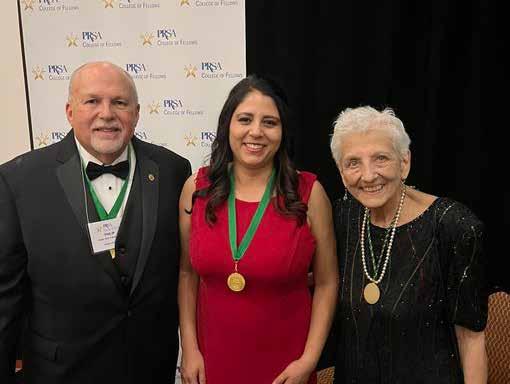
This year when TSPRA heads to Cowtown, you are going to want to make sure you reserve your seat for the amazing lineup of state and national speakers that will be featured on Monday during preconference. With topics ranging from crisis communications to a new professionals program for TSPRA’s newest members, there is a topic that will work for every person in your communications department.
Keep in mind that these eight pre-conference sessions are just $100 each and can be added to your registration to the conference. These sessions will be held on Monday, February 20 from 1 to 4 p.m.
with Cody Cunningham, Prescott Communications
This pre-conference session will focus on the process of engaging the community and staff in an effective approach to planning any election (bond, Tax Ratification Election (TRE), Voter-Approval Tax Rate Election (VATRE), recapture election). The session will cover the process from long-range facility planning committee to district communications to community advocacy. In particular, the session will focus on effective bond election strategies including social media strategy, voter analysis, communication messages, branding, election law, engaging key community members, new election tools, district and campus communication strategies, and more. We will cover both the art and the science of planning elections during a time when school districts are facing some of the greatest PR challenges in our history. This session will also review recent elections across the state and identify potential challenges and opportunities in upcoming election cycles.
Founder of Prescott Communications, a strategic communications and PR consulting firm, Cody Cunningham has extensive experience in both corporate and school communications. In addition to helping corporations, school districts and universities in communications and public relations efforts, he has managed communications operations for large school districts for the past 20 years. He is a recognized expert in public engagement, campaign communications, bond campaign law, and social media strategy.
Mr. Cunningham has provided bond planning and campaign strategy for over $4B of successful school bond programs during the last two decades with a 97% passing rate. He has extensive experience in community engagement, social media campaign strategy, media relations, and voter analysis. During his career he has developed a system for bond planning, community engagement in the bond planning process, and staff engagement.
His extensive experience in school public relations in Texas provides a unique background and perspective on school bond planning and campaign strategy. Successful elections include Prosper ISD bond election ($1.4B), McKinney ISD (three bond elections, TRE, and recapture election), Tyler ISD, Callisburg ISD, and others. Most recently, he developed the strategy and led a community group to a successful election in Westwood ISD, the first successful bond election in the community in over 42 years.
He has served as the Chief Communications & Support Services Officer for McKinney ISD, Director of Communications for Tyler ISD, Communications Coordinator for Allen ISD, and Communications Specialist for SHW Group Architects.
Mr. Cunningham earned a Bachelor of Arts in Speech Communications from Texas A&M University and a Master of Science in Communication Studies from the University of North Texas. He holds a Texas Superintendent’s Certificate from the University of Texas at Arlington.

School safety is a top of mind concern for parents, staff, and educational leaders. With few exceptions, our schools and communities are faced with the dilemma of how to protect the integrity of the environment where learning takes place amidst a world of violence. The concerns for school safety are not new. The challenges are real. In this engaging session, participants will explore a range of communication strategies and tools, and apply them to real-life scenarios in table-top group interactions.
Rick is the Executive Director of Community Relations and Emergency Management for Bloomington (MN) Public Schools. He manages the communications, community relations and emergency management programs. He formerly served as the Executive Director of Public Engagement and Communications for Jefferson County Public Schools, Colorado’s largest school system, from 1998-2006.
Rick is a nationally-respected consultant and trainer on emergency management and crisis communications, having worked in public schools and emergency management for more than 30 years.

In 1996, Rick developed the first full-scale active shooter drill in a school setting while employed at Sheboygan (WI) Area School District. Three years later, the unthinkable happened when on April 20, 1999, two students attacked Columbine High School in Littleton, Colorado, killing 13 and wounding 26 others. Among the first to arrive on scene, Rick provided emergency triage and rescue operations before assuming co-lead of the Columbine Crisis Response Team. He led all aspects of the communications, media relations, and crisis response/recovery efforts.
For the past 24 years, Rick has worked with hundreds of school systems, law enforcement, and emergency management agencies throughout the U.S. to improve safety, security measures, and emergency response. Rick is the author of The Complete Crisis Communication Management Manual for Schools (2016), and served as a presenter/panelist/content expert at the We Are Columbine: 20 Years Later symposium (2019), MN School Law Conference (2019), Wisconsin School Safety Summit (2015), and former U.S. Senator Al Franken’s School Safety Summit (2014).
with CALSPRA Exec. Director and author Trinette Marquis, APR
Research and evaluation are the least understood steps in the PR FourStep Process – many people are intimidated by the prospect of conducting original research, understanding what data to pay attention to, and figuring out how to display data in a way that makes it powerful and accessible. This session is designed to change that. We’ll explore how to collect the data, how to analyze the data, and how to report the data in a way that keeps your organization focused on the most impactful communication efforts. Using best practices, examples from the field, and interactive discussions, you’ll leave this session more confident about your ability to put data to work.
With more than 20 years of experience in communications, marketing, and public relations, Trinette Marquis, APR is passionate about working with public schools and improving school community relationships.

Early in her career, she worked with Fortune 500 companies, statewide nonprofits, and internet start-ups but realized something was missing. Inspired by her father’s positive experience as a custodian, Trinette brought her business talents to the schools where she grew up and eventually started her own business in 2012 to help districts throughout the country.
Her work has been recognized by the National School Public Relations Association, the American Association of School Administrators, the Medical Marketing Association, and the International Association of Business Communicators. She is the Executive Director of the California School Public Relations Association and regularly presents to national audiences on strategic public relations. She is a lecturer at California State University, Sacramento and author of the books, Engaging Data, Smart Strategies for School Communication (2018) and co-author of The Communicating Principal (2021).
with
TSPRA member Emily Conklin, APR, CPC
Heel toe, do-si-do, come on, baby, let’s go to TSPRA! Whether you’re just starting in your career or are a public relations professional new to school PR, WELCOME! This is the session for you! TSPRA is a great resource to connect, learn, and grow professionally as well as find fellowship along the way. In this session, we will Boot Scootin’ Boogie as we provide tips, resources and strategies to two-stepping your way into your first year in school PR. Plus, get connected with a mentor to help you Trailblaze Together into 2023.
Emily Conklin, APR, CPC is the Director of Communications and Community Partnerships for Sheldon Independent School District. She has spent 18 years in school public relations in the Dallas Fort Worth and Houston regions. She holds a Master of Arts in Communications degree from Tarleton State University and a Bachelor of Arts in Mass Communications degree from Texas State University. She has her Accreditation in Public Relations and is a Certified Public Communicator through Texas Christian University. As a proud product of public education and the daughter of two public education school teachers, Conklin is a strong advocate for Texas public schools. She has presented numerous times across the state and nation on effective communication techniques and branding strategies for organizations. She is on faculty with the Certified Public Communicator program at Texas Christian University and is an adjunct lecturer for San Jacinto College.
Competition for your audience’s attention has never been greater. With social feeds full of videos, how do you create compelling content that connects with and engages your audience? Jake Sturgis, APR, and Andrew Coons from Captivate Media work with schools across the country and will share practical ways for you to level-up your video production skills. From storytelling strategies to Instagram Reels, you’ll learn new ways to approach video production that will increase views and engagement with your content.
Jake Sturgis, APR, worked for two school districts in the Twin Cities for nearly 12 years prior to starting Captivate Media + Consulting in 2014. He leads a team of 12 cinematographers, editors, graphic designers, and strategists who craft stories that ignite community change. Jake’s work has won numerous state and national awards. He served on the Minnesota School Public Relations Association (MinnSPRA) Board from 2015-2019, including one year as President. He also served as a board member for the Minnesota Chapter of the Public Relations Society of America (PRSA) from 2019-2021.

Andrew Coons started making videos when he was 13 and hasn't stopped since! After graduating from film school he worked as a photographer and videographer in the real estate, wedding, and sports industries in the Carolinas before moving to Minnesota in 2014. Andrew joined Captivate Media in 2018, and oversaw the creative direction of the video production team. Now as the Director of Partnerships with Captivate, Andrew works to set strategy and vision with clients to create content that gets results. Andrew's love of storytelling extends beyond filmmaking. He is also a poet, game designer, and podcaster.

Episode
2023 with Andrea Gribble of Social4SchoolsEdu
My, how things have changed in regards to school social media! While navigating the negativity in a highly politicized climate can drain your energy, there is still so much to celebrate. Grab a pep talk from school PR’s biggest cheerleader Andrea Gribble. She’ll break down the proven strategies for social media success and engagement. You’ll learn:
• How to rethink the content shared on social media
• How to build an army of storytellers
• Easy ways to save time
• How to plan your content
• How to boost community engagement
• The latest social trends to help you thrive
Andrea’s passion is helping schools recognize their daily awesomeness and sharing that story with the world. She’s built a team that celebrates hundreds of schools across the country! #SocialSchool4EDU provides full social media management and runs a vibrant online community that provides ongoing professional development for school social media champions.
with TCU Certified Public Communicators (CPC), Ashley E. English, Ph.D and Jacqueline Lambiase, Ph.D.
Is your district listening as much as it should? And is your listening done in equitable ways, leading to action and change that will build trust with your stakeholders? This session helps you audit the ways that your organization listens, finding the gaps and building in accountability so that when parents and residents speak, their words and ideas aren’t overlooked. Drs. English and Lambiase will help you identify new roles for communicators, especially for a “listener-in-chief,” where the buck stops on listening. They will share quick research and theories, and then give you practical ideas for building and maintaining a listening culture through engagement practices and two-way dialogue.
Ashley E. English, Ph.D. is an assistant professor of strategic communication at TCU in Fort Worth, TX where she also serves as a core faculty member in the Certified Public Communicator Program. English earned her Ph.D. in Public Administration & Management and is the co-founder of the TCU Nonprofit Communicators Conference. Her current research interests include examining public-sector communication with Black stakeholders, social media fatigue among content creators, and megachurches' use digital platforms to facilitate dialogue and promote accountability to stakeholders.
Jacqueline Lambiase, Ph.D., is a professor of strategic communication in TCU's Bob Schieffer College of Communication. In the past two decades, she has published more than 50 articles on public relations, public-sector communication, digital marketing, and gender/sexuality in advertising. For more than 10 years, she has worked with public-sector organizations on communication planning, organizational listening, ethics, writing, executive presence, digital engagement, and other topics. She directs the Certified Public Communicator Program at TCU, with 3CMA as a partner and with its 10th cohort starting in the summer of 2022.
with TSPRA member Danielle Clark, APR
Want to move from communications technician to advisor and strategist?
Three letters are the key to success: Accreditation in Public Relations (APR). Come learn about the process of becoming accredited and how it will forever change the way you approach your work. See why accreditation is an important step along your career ladder while gaining insight into the process. Dialogue with veteran school PR professionals about the value of accreditation and create a plan for how you can do it too!
Danielle Clark is the chief communications officer for the Harris County Department of Education. In this role, she oversees communications, marketing, client engagement and technology for the educational service provider, its Head Start campuses, and special schools.

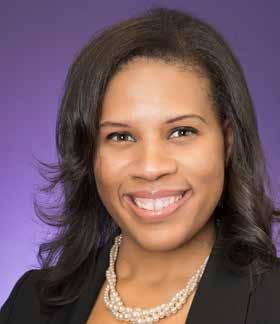
Danielle has 23 years of experience in school communications in urban, suburban, and rural school districts with a background in journalism and advertising. She is an active member of NSPRA, having held leadership roles in three state chapters and was named one of four NSPRA Front-Runners in the country in 2017. She is currently the TSPRA APR chair, earning her APR in 2017.

Ahoy, maties! Being a marketer is a bit like being a pirate. Like a pirate, a marketer's job is to acquire, retain, and recapture treasure. While pirates desire gold, jewels, and trinkets, marketers covet customers. School marketers work with limited resources and time constraints, just as pirates have limited resources and live under the credit of the treasure they will find.
Unlike pirates, marketers educate, invite, and nurture customers by using strategies that personalize, target, and align with their customer's objectives. Email can reach and connect a marketer with treasured customers in an effective, affordable, and personalized way. It is the X that marks the spot for customer reach, loyalty building, and delivering value.
Email consistently delivers results outperforming texts, push notifications, social media, and direct mail. It allows the recipient to read messages and respond at their convenience. Email keeps a better record of conversations. It's free and can be easily forwarded, personalized, and targeted while used to communicate with masses of people. Most made-for-school mass communication systems allow uploaded customer email lists and an HTML source code function to distribute and display custom email messages. Using an email service like MailChimp, Send in Blue, or Constant Contact is affordable and well worth the access to campaign open rate data.
While most marketers have to put in a lot of hard work to gain a quality email list, school marketers can access 100% of their external and internal customer's emails. It's like being handed a treasure map. Segmenting the email lists by age, school, feeder pattern, language spoken at home, position or program code, and entry and withdrawal dates can get the right message to the right customer at the right time.
For external customers, email can help win them back, deliver value-added product information, and nurture relationships. Email within an organization helps with staff retention rates by highlighting an underutilized benefit, acknowledging a milestone or day, or saying thank you right before or welcoming back after a holiday break. Email communication - both externally and internallyshould receive the same care. All communications matter.
Use personalization in emails to reach and connect with the target audience. Have you considered emailing customers who have withdrawn from your district? I delivered an external email win-back campaign that generated over $1 million in student revenue. I segmented student withdrawal data by school, grade level, and language spoken at home. The email featured their school's branding and logo prominently, a campus point of contact, and directly stated, "We Want You Back," or "We Miss You At School." Nearly 200 students re-enrolled from this single campaign. And the campaign cost me practically nothing to execute.
Expect customers to view emails on their mobile phones. Design the email to display well on a desktop and a mobile device, keep it simple, and offer a clear and direct call to action with clickthrough links to a website. For example, Enroll Now, Re-Enroll for Spring, Sign Up, or Learn More. Check the customer experience of the web page the recipient will land on after they click through the email. Is the web page mobile-friendly, compliant with state and federal ADA laws, and does it generally deliver a positive brand and customer experience?
1. Develop an email marketing calendar. There is a seasonality to school events, programs, and needs. So once you plan your email marketing calendar, you can use it yearly.
2. Provide customers opportunities to sign up and opt in to receive your emails. Have separate sign-up lists for different segments. For example, customers signing up for messages about pre-K, kindergarten, or college fair are on different email lists.
3. Position the content to be about the customer, not about the district. Tell them what they'll get out of it if they engage.
4. Include a call to action, and email the customer with news or for a specific reason or request.
5. Check campaign click-through rates. Offer the call to action in at least two places within the email. Then compare which link got clicked more than the other. If you don't use an email platform and send emails through your mass communications system, assign each link a unique Urchin Tracking Module (UTM) code. UTM codes are bits of text you can add to a link that tells your analytics tool where your traffic comes from and track the performance of each of those links.
6. Check the email open rates and use the email service provider's data to test different subject lines.
7. Using an email service provider offers customers the option to opt-out of receiving communications. An opt-out option is an FCC regulation, a better customer experience, and makes it easier to manage lists.
8. Create emails that are ADA compliant.
9. Send yourself a test email before you send it to your list.
Email opportunities in the fall include a campaign to advertise your after-school programs or recapture students who withdrew. Encourage parents/guardians of eighth graders to re-enroll their student(s) for the spring because enrolled students get first choice when selecting their classes for freshman year. Build internal goodwill by sending staff a "We're Thankful for You" email before Thanksgiving break. Drive attendance to district events with a dedicated monthly email of what's coming up.
Developing a process to measure the email campaign conversion rate may prove challenging. It's something I tackle with each campaign. School district applications aren't usually set up to support direct response or inbound marketing campaigns. For instance, when customers click through for an enrollment campaign, ultimately, I want them to complete an enrollment form. I use a platform called InfoSnap. However, the Infosnap form breaks the UTM tracking string. This means I have had to find a workaround to ensure I can track the users. In an instance like this, I use my command F function to manually seek and find new student enrollments by comparing their names to the email list I used. Although this manual effort is tedious, It is worth the effort.
Now avast ye, landlubbers, gather up the treasure maps, hoist a pirate flag, and set sail in search of marketing treasure. Handsome rewards are on the horizon!
Dianne Foletto has been in school marketing and PR for more than seven years. She leads Round Rock ISD’s marketing, brand, social media, and internal communications.
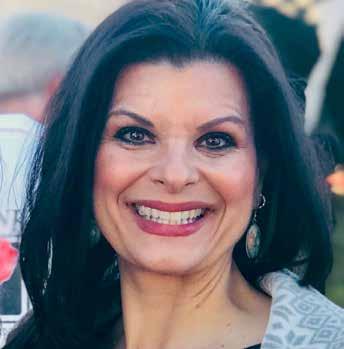
I love to look at homes. Whether it’s dreaming my way through Zillow, walking through my neighborhood, or binge watching Fixer Upper, a home’s curb appeal always draws me in. Curb appeal might say, “Hello! Check out my awesome home! Welcome! I love my home! There’s more awesomeness inside! We’re friendly people! I have great style!”
When it comes to school district marketing, curb appeal applies to both the physical buildings and the virtual, aka the website. Your district website’s curb appeal starts with the homepage. It is the first step in creating a functional and powerful website that works for you 24/7.
Students Community Staff
If your homepage is primarily a repository for fliers and easy access for your staff needs, it’s time for a redesign. If your homepage is a kaleidoscope of images, sections, subsections, logos, sidebars, social media feeds, and more than 15 “quick links”, it’s time for a redesign.
Your homepage should do one of two things: pull the user in to learn more or give the user exactly what they need so they can get out and move on.
Answer these two questions and you’re halfway down the field:
1. Who are your users?
2. What can you help them find?
Parents Enrollment, school info/events, research Portal, class info, school info
Jobs, sponsorships, events, contracts, board meetings, bonds
Job-related info
How do I enroll?
Where can I apply for a job?
Where are the schools located?
Will my child like this school?
Is this the district I want to live in?
Call to action link/button
Link to a landing page with all the info
Call to action link/button
Link to a landing page with all the info
Main navigation
Photos, videos, really good content describing benefits and programs
Call to action “explore”
Links to a landing page: welcome message from superintendent, highlights, photos, testimonials, data, awards
When it comes to the main navigation menu, we’ll go back to the home analogy. You wouldn’t display your appliance manuals for visitors to peruse when they first walk into your home, would you? Of course not! One of the main adjustments I recommend is to think about the need to include “DEPARTMENTS” on the main navigation. Instead, consider placing it under your ABOUT US.
Next, replace that coveted real estate spot with PROGRAMS or ACADEMICS. You can feature the big ones like pre-K, academies, STEM, fine arts, athletics, extracurriculars, CTE, and so forth. Featuring what you offer is a bullseye in answering the question “why choose us.” Each of those pages should answer, at a minimum, what it’s about and the benefits to students.
mission/vision
pre-k academic facts/data elementary athletics departments middle cte school board high extracurricular superintendent magnets/academies stem contact character/leadership
early college
A few things to consider:
• Reflect your brand and culture
• Think about tone and voice
• Include your logo, colors, and style guide
• Feature current photos and stories (non-negotiable)
• Use your photos (not fliers) in your header to link to a story or event.
• Utilize responsive design – (mobile)
• Focus the eye and refrain from cluttered content
• Answer – who we are, what we do, why we do it
• Build calls to action:
• Enroll, Apply, Discover, Explore, Visit, Contact
• Use white space to break up the content.
Often, the staff uses the website as their operations hub. I strongly recommend moving this off the main navigation. The preference would be a login area. But if you can’t do that, move it to the top navigation and train your staff to use the new location.
Once you’ve spruced up your home page, announce it! Create a buzz around your new design. Prior to your redesign, invite the community to answer a survey or create a task force. After the launch, thank those who helped make this a success. Create an event around your website launch! Celebrate and take pride in knowing your curb appeal is a big step to a welldesigned, functional, and helpful website.
Lisa Losasso Jackson serves as the Executive Director for We Go Public and the Go Public campaigns in San Antonio and Houston Gulf Coast. Go Public is expanding statewide (and the website is in a redesign process!). Lisa also provides school district marketing trainings and workshops.

Explore: http://WeGoPublic.com
Learn more: http://PublicSchoolMarketingServices.com
